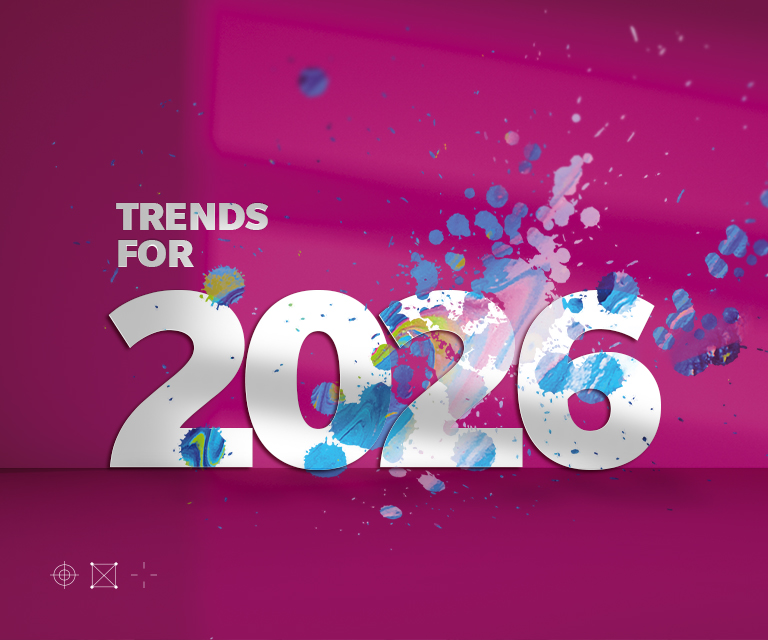
For those who often find themselves frustrated and exhausted from a day of admin and paperwork, there is good news. Automation is transforming the way activities like these are done in businesses at the everyday level. The tasks that drain human workers of time and energy can now be automated and with some amazing results.
While automation (especially robotic process automation, or RPA) has been present in industrial work for a while, its presence in the office is well and truly on the rise – especially in a post-COVID world of remote work.1
Here are 5 crucial areas where automation will provide significant benefits to future businesses:
1. Quality Management
An essential part of every business, inventory and quality management is inherently a repetitive and time-consuming activity. It is also, like many other repetitive business processes, a minefield of human error. Because process automation uses set systems and data, the liability of human error is eliminated and quality of output is close to guaranteed.2 This quality guarantee applies across all the processes that this automation is able to take over – where the human eye misses inconsistencies, RPA ensures accuracy.
2. Efficiency and Productivity
The effect of automation on business efficiency and productivity will be ground-breaking – especially when it is combined with virtual reality (VR) technology. While virtual reality has slowly but surely been infiltrating our daily lives in recent years, COVID has accelerated this to an unprecedented extent. Since VR arrived on the scene, most people have thought of it merely as an entertaining novelty, serving no further purpose than enhancing games and giving unsuspecting individuals who put on the goggles a fright. However, with the travel bans and distancing measures of COVID making many work interactions impossible, VR has provided a COVID-safe and shockingly futuristic way of conducting work. Global semiconductor manufacturer, Intel, faced just this problem when one of their top engineers could not be flown in to solve a pressing manufacturing issue. Donning his VR goggles, he was able to examine the issue up close and remotely give repair instructions to engineers. Volkswagen did the same in its repair processes when experts were stranded, using VR to bring the expert, technician and issue together. For Intel and the broader chip industry, the successful use of VR under unprecedented circumstances has led to a greater integration of its technology into everyday processes. Where once any kind of camera technology posed a threat to trade secrets, the capabilities it enabled in these circumstances are too beneficial to overlook.
When you combine this capacity with robotic process automation, things get very exciting. The facts are that RPA can simply move more quickly within set systems than a human can. Better yet, it does not need breaks, can work 24 hours a day and does not make human errors.3 As economic pressures increase cost scrutiny for organizations, it significantly reduces costs of labour, employment and error, meaning that businesses can produce more and spend less.4 Reflecting on the efficiency gains that automation will offer the banking sector, Jacob Hook of management consulting firm Oliver Wyman suggested that “At a process-by-process level, [reducing workflow through RPA has] the potential for a 50 to 70 per cent cut in costs”.5 Evidently, the return-on-investment offered by RPA in terms of efficiency is unparalleled and is irresistibly attractive for executive leaders.
3. Human Skills – While many fear the unemployment that automation such as this could produce, it frees humans to exercise their ‘human-ness’ to a much greater extent than ever before. Rather than wasting human workers on the mundane tasks that a machine could do,6 automation allows humans to spend their efforts on distinctly human activities – creativity, negotiating, decision-making, problem-solving. Automation does what humans shouldn’t need to do, so humans can do what only humans can do. To put it even more simply: robots are being robots so humans can be humans. When looking at the nature of our future work, the question celebrated writer and economic theorist Scott Santens poses is one worth pausing to reflect on: “No one should be asking what we’re going to do if computers take our jobs – we should all be asking what we get to do once freed from them”.
Santens’s question echoes a similar sentiment expressed by the great economist Adam Smith in 1776: “The man whose whole life is spent in performing a few simple operations, of which the effects are perhaps always the same, or very nearly the same, has no occasion to exert his understanding.” Put more simply, as robots free us from doing much of what we’ve described for centuries as ‘normal everyday work’, will we humans have the capacity to become more human and less robotic? Could it be possible that the age of automation sees us adapt as humans to no longer define ourselves by our work – while at the same time ushering in a new age of productivity and prosperity?
4. Customer First
Businesses for decades have aimed to put the customer first, but automation is allowing this to be put into practice more than ever. AI and its utilisation in the era of COVID, however, has not been limited to surveillance. The hotel industry, which has taken a huge hit with the collapse of travel, has been using AI to enhance safety measures for hotel guests. With some horror stories circulating the media and with COVID making a germaphobe of us all, perhaps the most strategic move hotels can make is to ease the concerns of customers in terms of hotel cleanliness. Using voice activated technology, guests in many hotels can ‘make a call’ to make special requests and can control lighting and television remotes – some of the places within hotel rooms that are notorious for spreading germs. Beyond Artificial Intelligence, guests at MGM Resorts International hotels have the option of conducting their check in, processing their payment and accessing their room key all through a mobile app, rather than interact with staff. However, this does mean that the redundancy of many workers in the hotel industry, while perhaps not being as extreme moving forward, is set to continue. The hospitality industry more broadly is finding that embracing emerging technologies is the only way to reconcile social distancing and business. The chain bakery store, Panera Bread, has introduced a curbside service in an attempt to encourage sales by taking away the threat of the in-store queues. Customers place an order through an app, register their vehicle, and have the option of using geocaching technology or simply pressing ‘I’m Here’, so that an employee can deliver their order to their car. Considering that Panera is attributing 65% of its revenue to these digital sales, it is clear that the integration of this technology into everyday processes is the key to survival for hospitality businesses.
Process automation is also a powerful tool for putting customers first because of the accuracy of the data and systems and the predictability of results.7 The management of customer experiences is also streamlined through better utilisation of analytics.8 This was powerfully demonstrated during the ‘Great Lockdown’ when businesses that were new to online trade had to quickly identify trends in the digital needs of customers. While RPA technology monitors the transaction elements of customer experience, the human workers are free to use people skills of empathy and negotiation to provide a better customer experience than they ever had the capacity to provide before.
5. Future AI Potential
Where this will all get very interesting is when the programming, maintenance and some of the decision-making aspects of automation technology can be conducted by AI. This union is still very much in progress but when it occurs it will mean even less human involvement. 9It will also mean that the tasks RPA can conduct will not need to be solely repetitive but can involve more variables and individualised outputs. Although still incomplete, this union will bring its own set of benefits and drastically change the way we do business.
Automation will transform internal business practices, especially as its popularity and prevalence grows in an economically-constrained post-COVID era. It will allow organisations to achieve efficiency and productivity to an unprecedented extent, while also empowering the human worker to be more human than ever. The full potential for automation is yet to be realised, but it is certain that its integration into organisational practices will revolutionise the way we do business.
[1] Krishnan, A, ‘The World of Robotic Process Automation,’ CIO Applications, 2020.
[2] Thakral, V, ‘Robotic Process Automation: A New Technological Horizon,’ CIO Applications 2020.
[3] 2017, ‘Robotic Process Automation (RPA): how does it work?’ KPMG Nederland, 23 October.
[4] Thakral, V, ‘Robotic Process Automation: A New Technological Horizon,’ CIO Applications 2020.
[5] Eyers, J. 2017, ‘Can The Big Four Banks Get Small And Smarter?’, The Australian Financial Review, 5 May.
[6] Manhas, S 2020, ‘How is RPA Transforming the Way we Work?’ Bit Rebels, 25 January.
[7] Henstock, P, ‘The Rise of Robotic Process Automation,’ CIO Applications, 2020.
[8] Manhas, S 2020, ‘How is RPA Transforming the Way we Work?’ Bit Rebels, 25 January.
[9] Henstock, P, ‘The Rise of Robotic Process Automation,’ CIO Applications, 2020.





